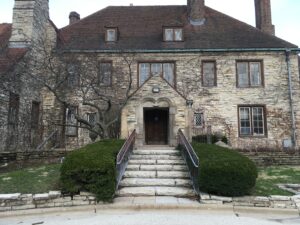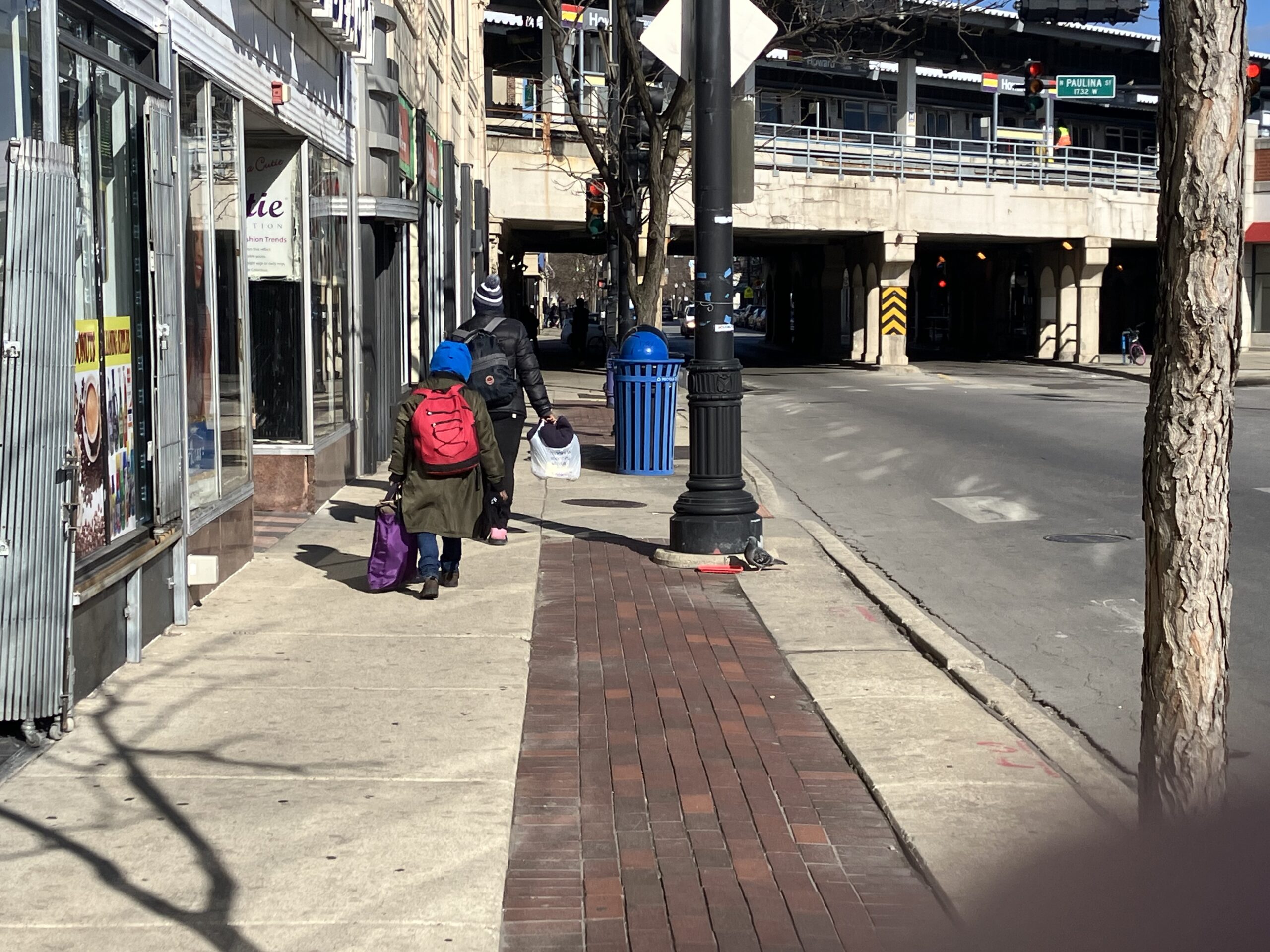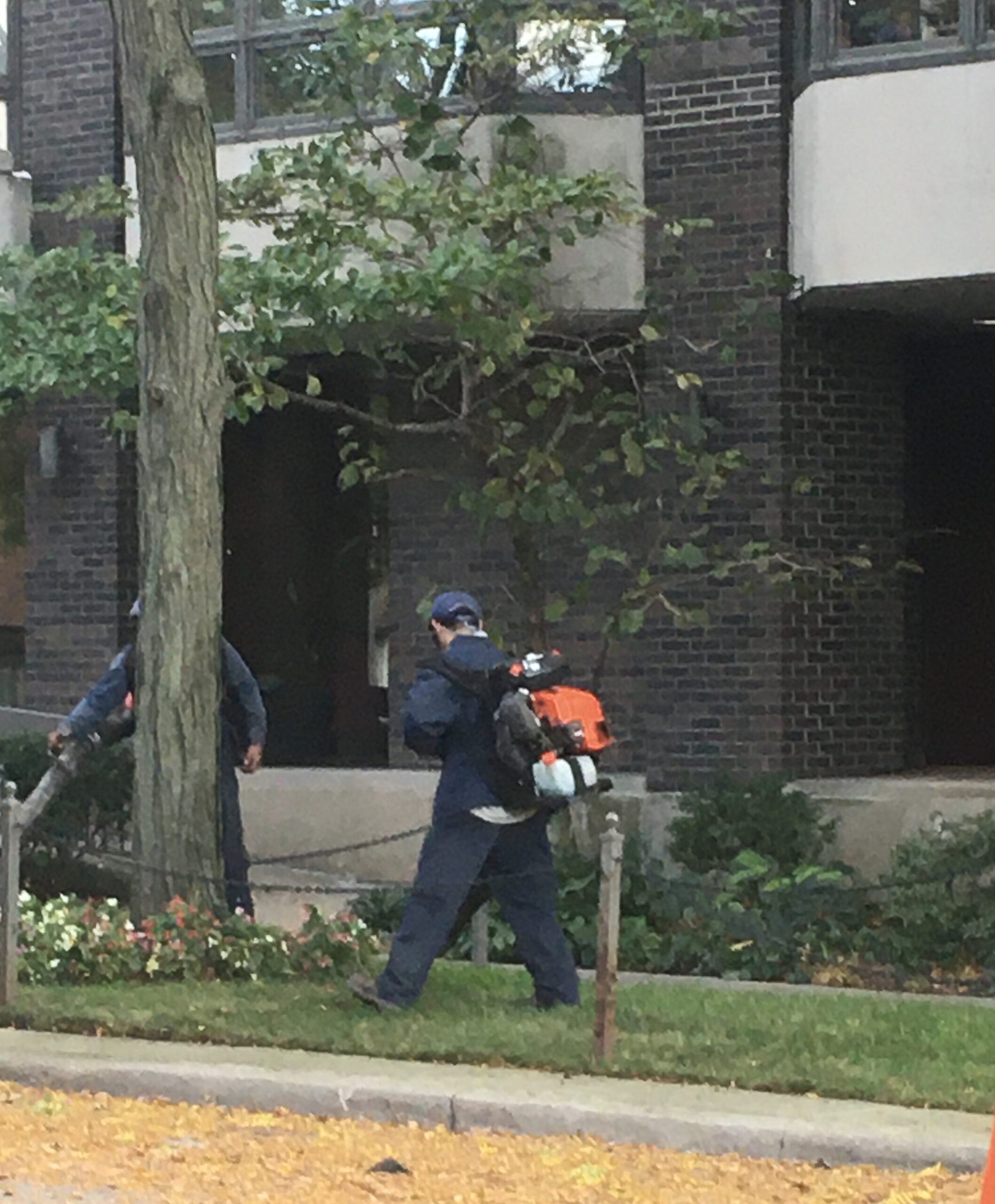
By Bob Seidenberg
A citizens group has raised criticism of an aldermanic committee’s recommendation not to include an outside group in evaluating the proposals that have come in for the re-use of the City’s long-shuttered Harley Clarke property.
Jennifer Shadur, president of Friends of Harley Clarke, a citizens group which played an instrumental role in saving the lakefront mansion from demolition in 2018, raised concern March 5 that the move would place “exclusive review” in the hands of the City Council.
That’s “the same body that voted for a process to demolish the mansion until the very last moment when the overwhelming results of the (November 2016) referendum (who voted 80% to preserve) were undeniable,” she argued in a statement.
“Friends of Harley Clarke feels it is imperative for the sake of restoring public trust, for the sake of a serious commitment to due diligence, and for the sake of fairness and following its own official decisions and processes that the City Council fulfills its own official motion,” she said.
The Friends group statement came after the March 2 City Council Rules Committee meeting where aldermen failed to support the need for the review/evaluation committee.
Under the Council’s action last year, the committee was to include citizen members working along with City staff members to evaluate the proposals for the property, which have come in over the nine month request for proposal process.
At the March 2 meeting, though, some aldermen questioned the need for the evaluation committee, with so much previous discussion of Harley Clarke.
“My impression was that the proposals will be reviewed to ensure that they were compliant with RFP (request for proposal) parameters,” said Ald. Donald Wilson, 4th Ward, during the discussion. “I didn’t envision an additional new committee to start over again. You know, we can all agree we’ve talked about this an awful lot and I feel like as long as these respective proposals comply with the RFP…I think that it should move to the Council and we should see it from there.”
Ald. Judy Fiske, 1st Ward, said the evaluation criteria to be applied to the proposals sounded more like what the City’s Design & Project Review Committee does anyway.
That committee is comprised of staff members from various City departments who review how projects meet standards across a wide range of areas (parking, traffic access, fire safety, exterior building design and materials, etc.,).
With the proposals for reuse of Harley Clarke, “this is not necessarily a conversation to reopen with the community,” Ald. Fiske maintained, “as much as it is a conversation to see how these individual submissions comply or meet the criteria that we’ve established.”
Ald. Wilson also raised concern about the effect on the groups making the proposals having to go through the process multiple times. He stressed the proposals will be available to everybody.
“But to kind of put everybody to task, it seems a little like passing off responsibility,” he said.
Rules Committee decisions are not final and subject to approval by the Council.
Aldermen are scheduled to discuss and possibly vote on the issue at the March 23 it’s Council meeting.
Later, in the March 2 meeting, Mayor Stephen Hagerty gave aldermen a chance to reconsider the issue, noting he had been alerted in a text from a citizen during the meeting about City meeting minutes from last year, referring to the establishment of a review/evaluation committee to include members of the public.
“And I just want to make sure we’re comfortable if there’s a change from that direction,” he said, receiving no response.
Ms. Shadur, in her statement, also pointed to excerpts from official City minutes and memos, stating plans to set up the committee comprised of residents and staff.
“In fact, it is in the best interest of both the city and City Council that there is public trust in this process and in the ultimate decision made for Harley Clarke,” Ms. Shadur said.
“This can be established by a commitment to the agreed-upon next steps. It is also only fair to the responders who have spent nine months and thousands of hours in creating proposals.
“Further, if the process is only in the hands of City Council, who have already stated they have “Harley fatigue”, we are concerned about the level of review of what may easily be a total of 400 plus pages (in addition to the hundreds of pages of information they are expected to review for each Council meeting. “ she said
“Will Council members review these proposals in earnest and deeply consider all of the factors, and do so with an open mind? Or, will they default to previously held positions on this issue?”
“We understand that Council is the final body to make a decision, she added, “but the public and RFP responders deserve a better commitment to this important endeavor — the one that was set out when the RFP was created.”
Sent from my iPhone



